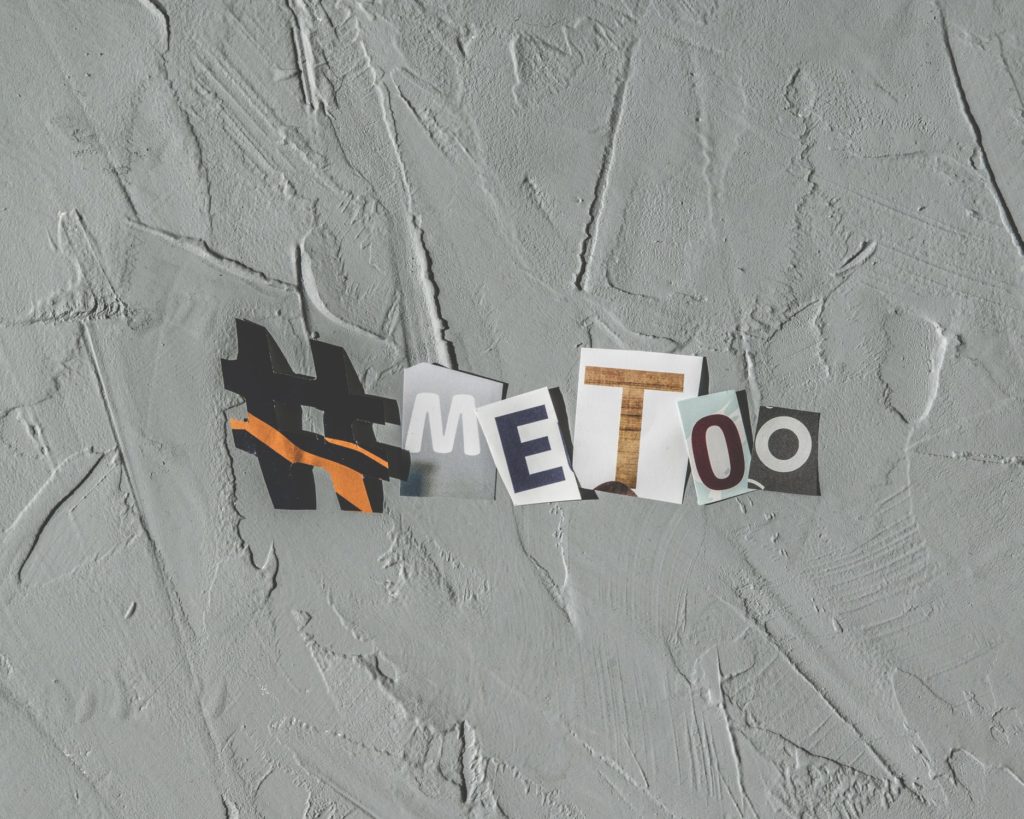
By: Faiza Chappell
From Harvey Weinstein to Bill Cosby, and now R. Kelly, women are coming forward every day with sexual abuse and assault allegations in Hollywood and the rest of the workforce around the country. Although the phrase “me too” has been recited since 2006, the “Me Too Movement” officially took off after the sexual abuse allegations of Harvey Weinstein in October 2017.[1] Hollywood continues to see individuals exposed for sexual assault allegations, and this has elicited a national response throughout different industries and the labor force.[2] The movement has proven to be more than a phrase or a hashtag, but a true movement that is affecting labor laws, policy, and business practices.[3]
As a result of the #MeToo Movement, Hollywood launched Time’s Up, an organization whose legal defense fund raised more than twenty-two million dollars to assist men and women who have been sexually harassed or violated on the job. At the federal level, the Equal Employment Opportunity Commission (“EEOC”) published data that recorded 66 general harassment lawsuits, 41 of which including allegations of sexual assault[4] (more than a 50% uptick in legal actions addressing that type of abuse as compared to the previous year.[5] Additionally, lawmakers all over the country, particularly in New York and California, have included measures to make anti-harassment training mandatory and bars employers from compelling staffers to sign waivers that block them from pursuing their harassers.[6]
Despite the increased awareness around the #MeToo Movement in Hollywood and other industries, businesses are moving faster than lawmakers, in terms of labor and employment litigation around sexual harassment.[7] In comparison, from a social point of view, a Pew Research Center poll revealed that 51% of Americans believe the increased focus on sexual harassment and assault has made it “difficult for men to know how to interact with women at work.”[8] Furthermore, others reveal that women of color and low-wage workers who are most susceptible to sexual harassment have been relegated to the sidelines, their stories largely ignored by media fixated on victims and perpetrators who are “affluent, famous, and white.”[9]
In Hollywood specifically, most studios and companies have been public about retraining staff on sexual harassment, but many have failed to take it seriously.[10] The measures studios and companies have implemented as a result of the movement have been interpreted as something that is mandatory and not considered a change to the culture or the industry.[11] There has been a 25% increase in calls for investigations by Hollywood-related corporations and guilds. Hollywood as a whole lacks a centralized system for identifying repeat offenders. Non-union employees and employees who work for smaller studios and companies do not have HR teams and remain vulnerable.[12] Lastly, the fear of retaliation for speaking out or coming forward is alive and well in Hollywood, as there is still a large price to pay in many instances. Many labor lawyers have come forward and stated that “the odds remain stacked against the women who come forward unless investigations are handled appropriately.”[13]
Hollywood and the rest of the U.S. workforce still have a long way to go. It is important for companies in entertainment to come forward with complaints as soon as possible. Society, existing business structures, and the legal system, however, still serve as barriers to do so today.
[1] Andrew Dalton, #MeToo Movement sends Hollywood Figures into Exile, Not Jail, AP News (Oct. 6, 2018), https://www.apnews.com/f89d2ab1b59c48d4b9c3ae0d7a41d0bc.
[2] Andrea Mandell, #MeToo a Year Later: Where is Hollywood Now? For Some, It’s Still ‘Lip Service’, USA TODAY (Oct. 8, 2018), https://www.usatoday.com/story/life/people/2018/10/05/metoo-year-later-where-hollywood-now/1449639002/.
[3] Charisse Jones, #MeToo One Year Later: Cosby, Moonves Fall, Sex Harassment Fight at Work Far From Over, USA TODAY (Oct. 4, 2018).
[4] EEOC Preliminary FY 2018 Sexual Harassment Data, Press Release, Oct. 4, 2018, https://www.eeoc.gov/eeoc/newsroom/release/10-4-18.cfm.
[5] Mandell, supra note 2.
[6] Mandell, supra note 2.
[7] Id.
[8] Jones, supra note 3.
[9] Id.
[10] Id.
[11] Mandell, supra note 2.
[12] Id.
[13] Jones, supra note 3.

